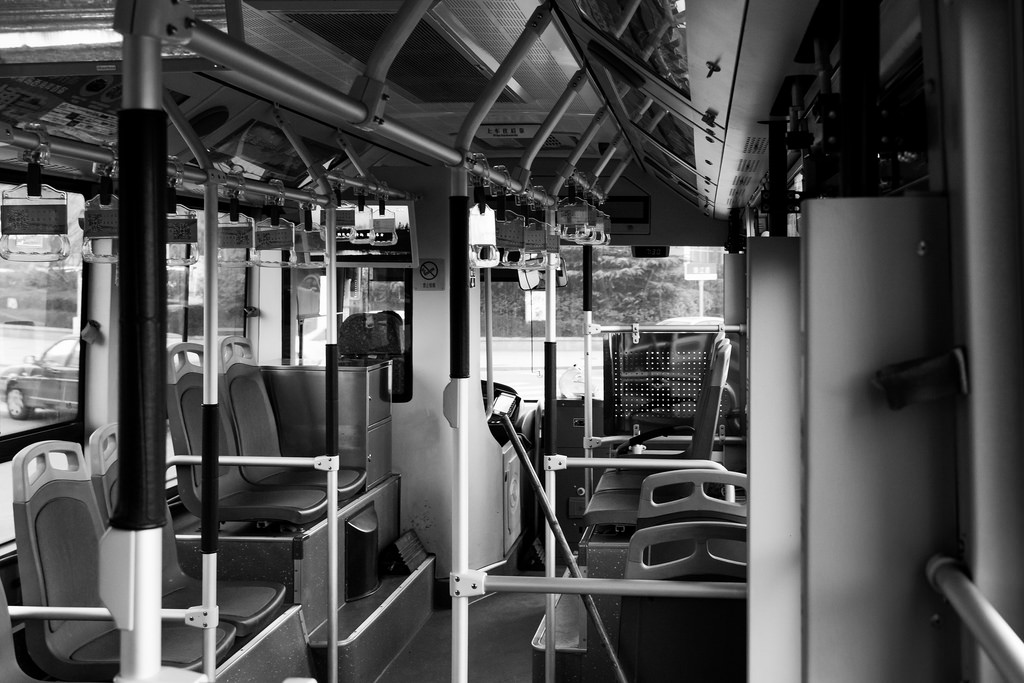“Dhaka’s women need better transportation”
November 7th, 2017 Public transportation in the crowded city of Dhaka puts women at a disadvantage and in potential risk. Abdullah Al Hasan, 26, a Commonwealth Correspondent from Dhaka in Bangladesh, has suggestions for remedies.
Public transportation in the crowded city of Dhaka puts women at a disadvantage and in potential risk. Abdullah Al Hasan, 26, a Commonwealth Correspondent from Dhaka in Bangladesh, has suggestions for remedies.
It’s nothing new that Bangladesh is a densely populated country. Being its capital, Dhaka has to house almost the whole educated community. Predictably, most of the jobs are here as well. So it has now amassed all sorts of people and triggered all sorts of problems.
The daily routine of a female worker is nothing short of a blood-curdling adventure. Her struggle starts with getting into public transport in the morning and ends with the same situation on her way back home in the evening. So why is that? Shortly put, lots of men are on the roads as her competitors.
Women have to fight for their places on the public vehicles and sometimes wait for hours because they are not strong enough to push past men in the crowds. What makes it worse is they have to suffer from sexual harassment while sharing a vehicle with men.
We might be transported with the generic thought that men need to change their mindset about women. That is much needed, but as our reality is drifting towards ruin for the time being, can we now just wake up and fix the problem? Apparently, there seems to be no effective way other than improving the public transportation system for women. How we can make it better for them is the burning question, and listing possible solutions might take us to the light. So what are those? We can provide separate public transport for women; give them the highest priority in public transit; or make it mandatory for companies in Dhaka to provide transportation for their female workers.
Having a separate transportation system for women might look impracticable at first, but if we voice the issue and everyone seconds it, it will turn out to be plausible. No, we don’t have to buy new vehicles. We can simply follow a procedure to use our current resources differently. For example, let’s pick some vehicles from the allotted ones for a specific route and assign them to carry only women. If you consider the number of female workers in Dhaka, you can surely customise and implement the idea in accordance with the needs and demands of each area. It could be four vehicles every hour, or two every half an hour for women. Doubledecker buses will come in handy in this regard. Besides, we don’t have to follow this all day long. In Dhaka, the transportation related problems of women mostly happen in the morning and evening. The rest of the hours can be exempted from this regulation.
Another auspicious option we can try is giving the highest priority to women during the peak hours. It’s not decent that women must run and compete with men to have space in those early and late hours. We often see that women get injured while trying to get into a vehicle. We don’t want to risk that, especially when there are pregnant women and children involved as well. The scenario could turn upside down if we just introduce a simple rule of letting women get into the public vehicles before men, to scale down their risk of getting injured. We can take the peak and off-peak hours into account and plan accordingly.
Apart from separate and priority-based transportation systems, there is another way to go. If all the companies in Dhaka provide transportation for their female workers, we can definitely ensure a secure and sound journey for them. There will be no room for sexual harassment. Other than managing vehicles, companies would not have to worry about this investment, because this facility doesn’t have to be free. Women will pay the amount they usually pay while traveling by public vehicles. There are already a lot of companies doing this, but to have a prolific outcome, all the companies have to come forward.
It is true that it will take some time to implement and adjust with a new system. But no plan becomes successful without the support and collective efforts of people. Women contribute in large measure to our economy. There is no way to deny that. So it is our duty to clear their path. All the solutions discussed here can only be effective if our government, people, city mayors, law enforcement agencies, transport owner associations and other organisations extend their hands to solve it. Let’s not just sit back, let’s bring out the improvements and make Dhaka livable for women.
Photo credit: Go-tea 郭天 Privacy via photopin (license)
…………………………………………………………………………………………………………………
About me: Hi, I’m from Bangladesh; the green land. Graduated from North South University majoring in marketing. Apart from my full time job, I love to write and explore human psychology. My other interests include metaphysics, chaos theory and politics.
I’m on a secret mission to fulfill my ordinary dreams and just one phone call away to go home.
…………………………………………………………………………………………………………………
Opinions expressed in this article are those of the author and do not necessarily represent the views of the Commonwealth Youth Programme. Articles are published in a spirit of dialogue, respect and understanding. If you disagree, why not submit a response?
To learn more about becoming a Commonwealth Correspondent please visit: http://www.yourcommonwealth.org/submit-articles/
…………………………………………………………………………………………………………………




